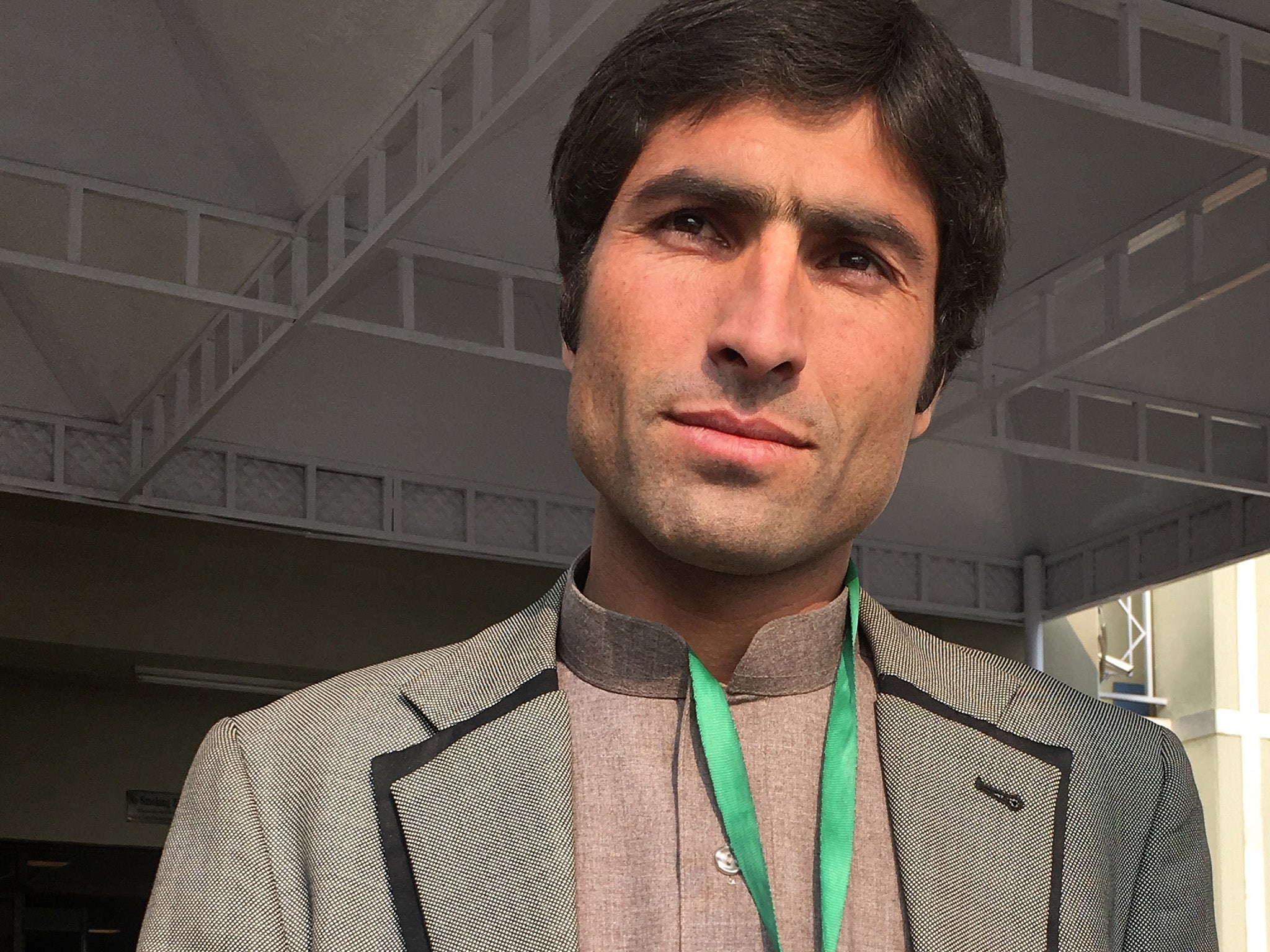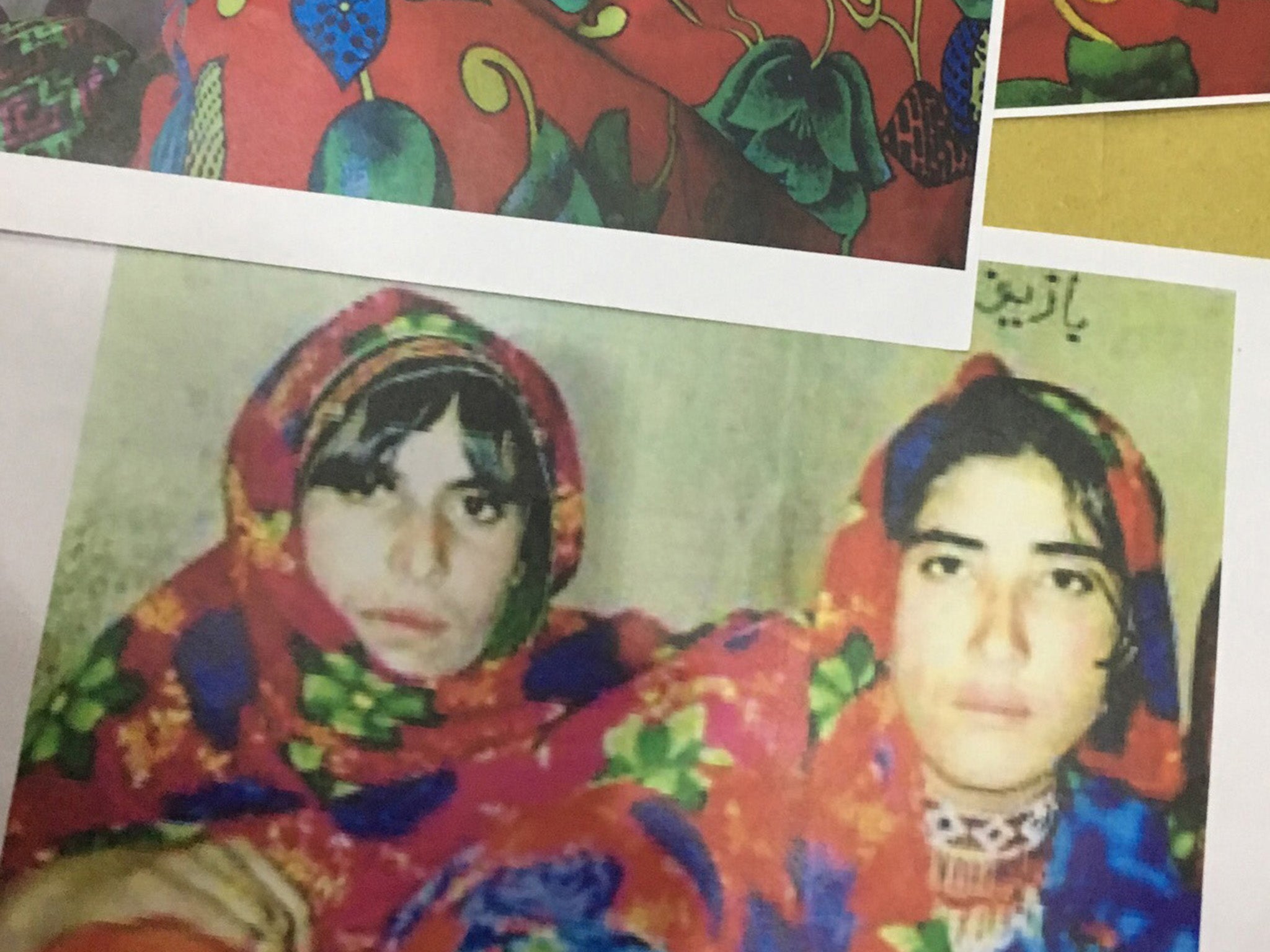The man who fought against Pakistani ‘honour killings’ and died for it
Afzal Kohistani knew he was going to die for his protests against traditional Pakistani honour killings, but that didn’t stop him from raising awareness, writes Pamela Constable

Your support helps us to tell the story
This election is still a dead heat, according to most polls. In a fight with such wafer-thin margins, we need reporters on the ground talking to the people Trump and Harris are courting. Your support allows us to keep sending journalists to the story.
The Independent is trusted by 27 million Americans from across the entire political spectrum every month. Unlike many other quality news outlets, we choose not to lock you out of our reporting and analysis with paywalls. But quality journalism must still be paid for.
Help us keep bring these critical stories to light. Your support makes all the difference.
I met Afzal Kohistani late one night in the winter of 2016, in a cheap restaurant in Rawalpindi, Pakistan. He was 26 then, well dressed and polite, but his eyes had the intense look of a driven man who knew he was taking on implacable forces and racing against time. He did not touch his tea.
Instead, he told a story, the same story he had told many officials before, from police and magistrates in his remote mountainous district in northwestern Pakistan, all the way up to the Supreme Court. It was an almost unbelievable tale of village “honour killing”, a horror story long buried under the northern snows until one young man had the courage to dig it up.
As he talked, periodically glancing towards the restaurant door, Kohistani said several times that he expected he might one day be killed for exposing what had happened in his ancestral village in 2012. As he described it, five girls were murdered for bringing shame on their tribe, after someone posted a video of them singing and clapping at a wedding.
The entire community conspired to cover up the murders, he said, and several young men from his family, who had appeared in the video dancing at the wedding, were hunted down and killed.
“This has destroyed my family. The girls are dead, my brothers have been killed, and nothing has been done to bring justice or protect us,” he told me. “I know I will probably be killed, too, but it doesn’t matter. What happened is wrong, and it has to change.”
Earlier this month, Kohistani was gunned down by unknown assailants in the streets of Abbottabad, Pakistan, police officials there said. News reports described him as a “whistleblower” who was killed for bringing attention to the notorious case.
The reports said he had told officials of receiving “constant death threats” from tribal vigilantes since last July, when four men were arrested and later convicted of killing several of the girls. He had asked for police protection, but none was provided, the reports said.
As I read those brief accounts, our grim, late-night conversation over untouched tea came flooding back. I had been incredulous at first, because even in Pakistan, where honour killings continue to take hundreds of lives every year – especially in conservative and isolated rural areas like Kohistan – this story seemed too grotesque to be true:
A village council, headed by a Muslim cleric, ordering the young women to be killed for dancing and clapping. Their own relatives burning them with hot coals and burying their corpses in the mountains. A plot by local elders to replace them with other, related girls, who were ordered to claim they were the murdered girls if police or others came asking questions. A local legal system that rejected Kohistani’s petitions for an investigation, telling him he was dishonouring sacred tradition by challenging tribal decisions.
“No one in my district or my province has ever spoken against honour killing,” he said, leaning forwards intensely and speaking in a low, rapid voice. “They tell me I have defamed my culture, my religion, my tribe. Everybody knows what happened, but no one is ready to come forward. This is an illegal, unconstitutional and un-Islamic tradition, but people don’t even consider it a crime.”
I was impressed by Kohistan’s sincerity and determination, but it wasn’t until later, when I spoke with others – lawyers, journalists, rights advocates, members of a fact-finding mission who had been sent to the village – that the story seemed plausible. A judge’s report contained a chilling detail: one girl, who was presented to investigators as proof that no murders had taken place, could not be identified because her thumb prints had been allegedly burnt off in a kitchen fire.
I had written about honour crimes before in Pakistan, notably the gruesome case of a woman whose jealous husband had carved off her nose and gouged out her eyes. I had met her, a silent and disfigured creature sitting on a bed. I had met her husband, a burly prisoner in chains outside a courtroom, who told me through an interpreter that he had no regrets because he had avenged his honour. I had tried to interview local officials, one of whom complained that I would bring dishonour to the town.
I had thought a lot about the word “honour”, how it could become conflated and confused with male pride, with control over the lives and choices of women, with tribal traditions trying to survive in a rapidly modernising world.

I had met many people in Pakistan who were working to change these customs, but most of them were women professionals or activists. Afzal Kohistani was a young man with no expertise or influence, but he had a clear, unshakable notion of what honour should mean.
When we met, he had come to the capital, Islamabad, for a hearing at the Supreme Court, which would soon take up his case and start the chain of events that led to the arrest and prosecution of some of the alleged killers, at the same time aggravating tribal enmities against him. He said he was worried about being followed and attacked, but he was poised and resolute.
At one point, Kohistani came out of the Supreme Court building, holding the arm of another man who was shy and poorly dressed. The man was carrying photographs of a young boy whose face had been horribly burnt, allegedly by a wealthy neighbour in a dispute over a property line.
Kohistani explained that the man was the boy’s father and had come to court seeking justice, but had no idea what to do. He looked at the photos of the burnt boy and smiled reassuringly at the father.
“I thought,” he said, “that maybe I could help.”
© Washington Post
Subscribe to Independent Premium to bookmark this article
Want to bookmark your favourite articles and stories to read or reference later? Start your Independent Premium subscription today.
Join our commenting forum
Join thought-provoking conversations, follow other Independent readers and see their replies
Comments